

|
A volunteer cleans Fortune Global Forum advertisement boards on the street in host city Chengdu. The event will officially open on June 6. Provided to China Daily |
Challenges, opportunities in increasingly connected world, Zhuan Ti and Li Yu report
Unlike most other high-level business conferences that open with discussions straight to the topic, the Fortune Global Forum has a tradition of starting out with a reception for the "Most Powerful Women".
This year is no exception.
Presented by JP Morgan and Zurich Insurance Group, the reception will bring together top women from multinational companies from around the world with some of China's most successful and powerful female leaders in business, government, NGOs and other fields on June 5, a day before the full forum officially opens.
They will then have discussions on women, power and the emerging world at a networking breakfast from 8 am on June 6.
Studies show that women in BRIC countries - Brazil, Russia, India and China - and UAE countries now have more education than their male counterparts. And they are more ambitious than their female peers in mature economies.
But they often face social and cultural systems that complicate their ambitions. The challenges are vast, but ways are being found to accommodate and encourage these successful women, said organizers.
Confirmed panelists at the discussion include Deborah Lehr, vice-chair of the Paulson Institute, Bridgette Radebe, executive chairperson of Mmakau Mining, and Zhang Huaying, vice-president of sustainability for Greater China and Korea at Coca-Cola Co.
Jennifer Reingold, senior editor of Fortune Magazine, will moderate the event.
Full forum participants will then have more activities, panels and discussions from June 6 to 8 on sustainable development, innovation and technology, global finance, economic recovery and the "China Century".
The opening ceremony for the forum will be held at 3 pm on June 6 with Wei Hong, governor of Sichuan province, and Ge Honglin, mayor of Chengdu, giving welcome speeches.
Business tours
On opening day, participants will take a tour of Chengdu businesses to witness the development of high technology and advanced manufacturing in the host city, a rising star in China's west.
They will visit sophisticated local business operations that are leveraging the power of Chengdu's advanced infrastructure and world-class talent to incubating new products and processes that can be applied on a global basis.
Sites include state-of-the-art facilities at GE, Intel and Volvo Cars.
Wrapping up the tour, some delegates will then attend a Fortune/CCTV roundtable on "Global Business Shift: Tapping into Emerging Economies".
Panelists will delve into the mechanics, trends and opportunities presented by the changing global business environment.
Confirmed panelists include Bruno Lafont, chairman and CEO of Lafarge, Stefano Pessina, executive chairman of Alliance Boots, Ellen Kullman, chair and CEO of DuPont, and Sichuan Governor Wei Hong.
Others scheduled to participate are Jeffrey Immelt, chairman and CEO of GE, Renee James, president of Intel Corp, and Guo Ping, deputy chairman of the Board and Rotating CEO of Huawei Technologies, who will have roundtable discussions on "Technology, Innovation and the Emerging World".
They will try to answer the question of how global technology providers are changing the emerging world and how the emerging world is changing technology, said organizers.
Various discussions
Lu Mai, secretary-general of China Development Research Foundation, Mona Mourshed, director and head of Education Practice at McKinsey & Co, and Xu Xiaoping, founder and managing partner of Zhenfund, will have discussions on "Education to Employment: Designing a System that Works".
That will be followed by a roundtable discussion on "the Future of Transportation" presented by Volvo Cars.
The global transportation industry is going through a dramatic transformation. With high oil prices and concerns over climate change, governments and the private sector are working together to create new, sustainable transportation systems.
Michael Dunne, president of Dunne & Co and author of American Wheels, Chinese Roads, Lex Kerssemakers, senior vice-president of product strategy at Volvo Car Corp, Wang Yinxiang, vice-chairman of Air China, and Rolf Habben-Jansen, CEO of Damco, will try to give answers to a number of questions:
How will the automobile adapt to a low-carbon world of 9 billion people?
What are the opportunities to harness big data to link with mass transits systems?
How will road, rail, air and water transportation adapt, evolve and integrate?
The next major topic on June 6 will be "Global Investment Strategies in an Era of Risk" presented by Zurich Insurance Group.
Following five years of turmoil and volatility in the global economy, the world is beginning to experience some level of stability and even growth in certain sectors.
Yet significant political, institutional and collective risks prevail in the domains of economy, environment, technology and health. In the hyper-connected global economy, the challenge is what investment strategies business leaders should pursue to seize opportunities while managing risk.
Key panelists scheduled for that discussion include Geoff Riddell, regional chairman of Asia Pacific, Middle East and Africa at Zurich Insurance Group, Victor Chu, chairmen of First Eastern Investment Group, Doug Lankler, executive vice-president and chief compliance and risk officer of Pfizer, Ralph Schlosstein, president and CEO of Evercore Partners and Richard Waugh, CEO of Scotiabank.
Participants will then discuss on "New Rules for Business: Global 500 Leaders Look Ahead".
Key questions will be where the global economy is headed, what new trends will generate growth and what strategies Global 500 leaders are implementing to survive and thrive in the new reality. China's economy is shifting, much of Europe is stuck in a recession, Japan is targeting inflation and the US is making slow progress in its recovery.
The final discussion on the first day of the Fortune Global Forum will be "Tapping into China's Changing Culture".
Mass market tastes in the country are changing fast, especially in the younger generation, as urbanization, technology and travel remake consumer experiences and demands. Local companies are fast creating brands and ideas that have a place in China and in the world.
Participants in the final session of the day will conduct discussions ranging from how changing tastes in the country and in the world influence the China market to what exciting new innovations lie ahead.
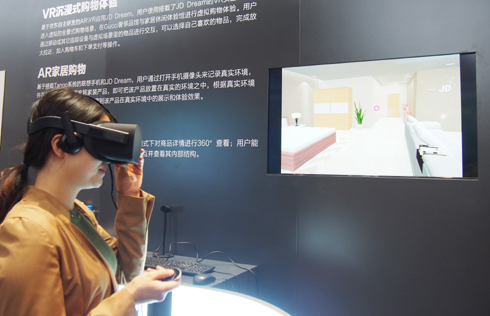 Big Data Expo opens
Big Data Expo opens
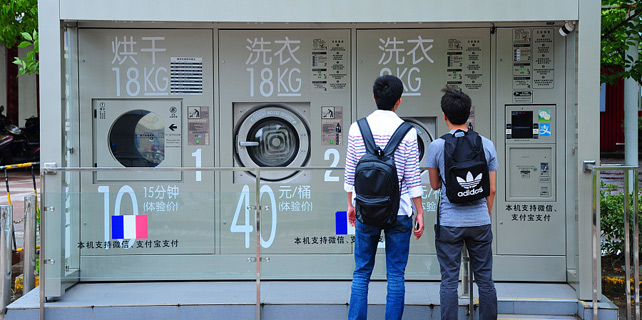 Smart sharing washing machines available in Shanghai
Smart sharing washing machines available in Shanghai
 Innovative designs highlight industrial design week
Innovative designs highlight industrial design week
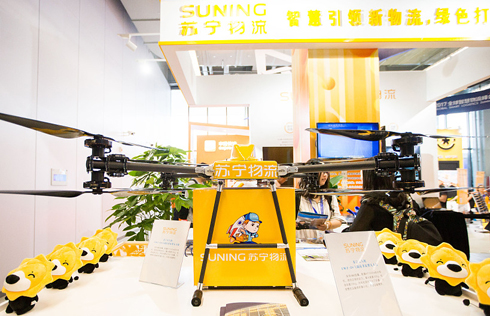 Smart tech to shake up delivery industry
Smart tech to shake up delivery industry
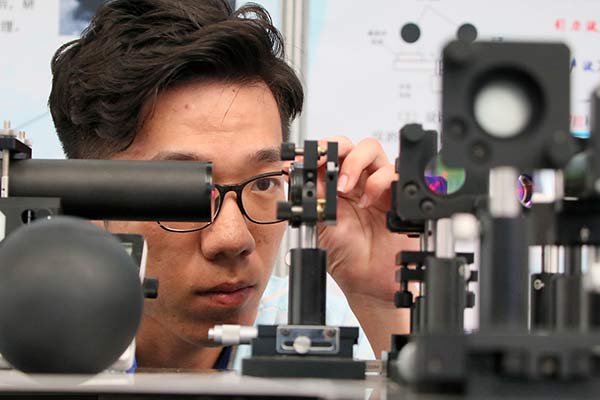 Chinese youths showcase innovative talents at tech competition
Chinese youths showcase innovative talents at tech competition
 Butterfly wings to inspire new solar power technology
Butterfly wings to inspire new solar power technology
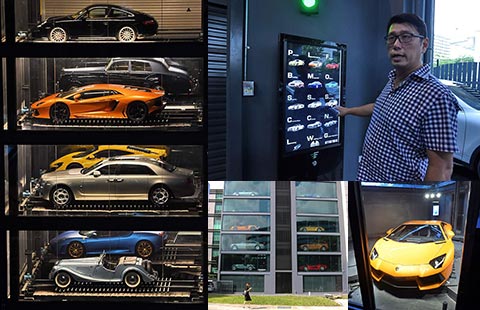 Singapore dealership sells luxury cars in 15-floor vending machine
Singapore dealership sells luxury cars in 15-floor vending machine
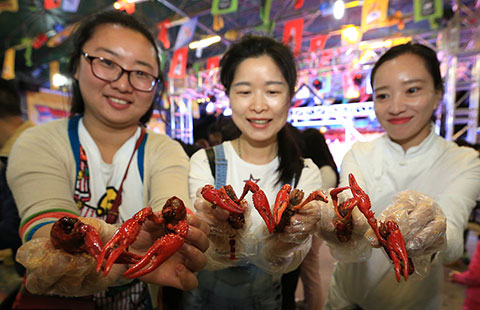 Peak crawfish eating season is here
Peak crawfish eating season is here